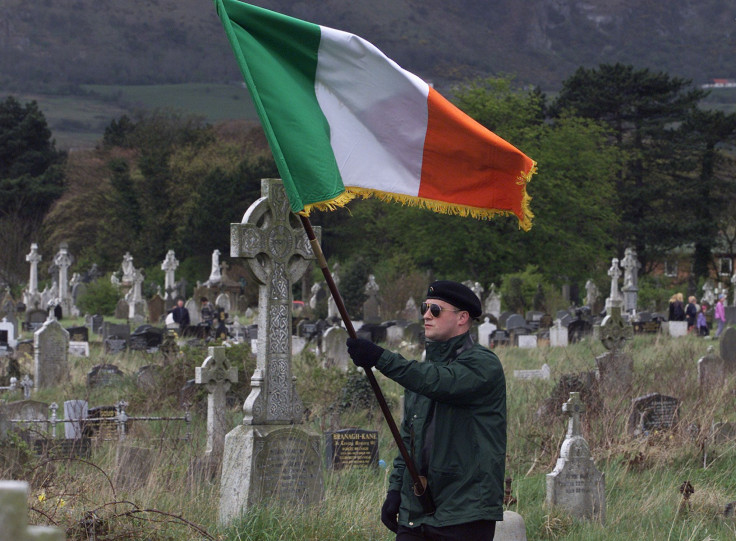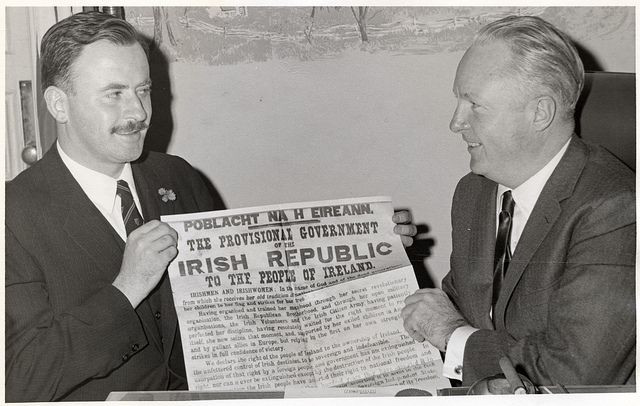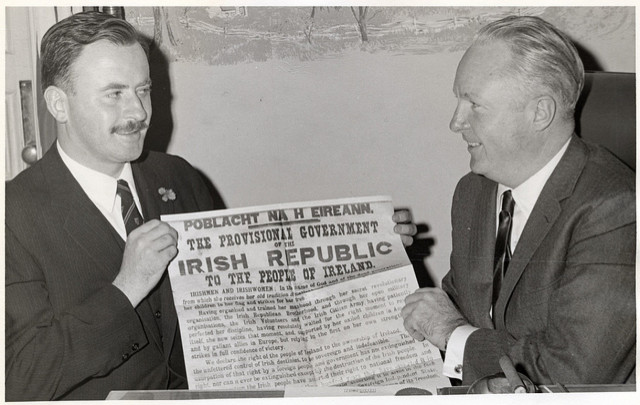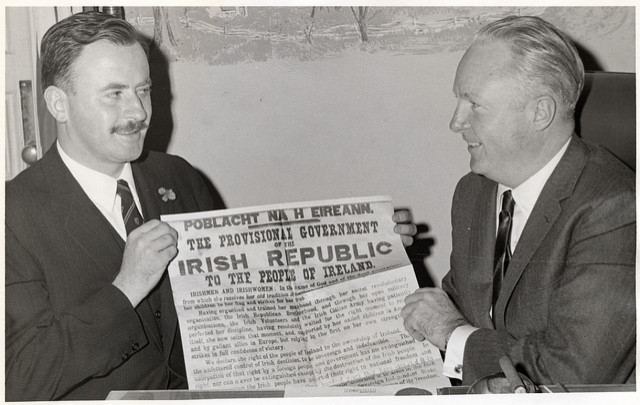Easter Rising: The Rebellion That Started Ireland's Bloody War For Independence

On April 24, 1916, a small band of militant Irish nationalists took up arms, occupied a handful of government buildings in then British-controlled Dublin and published the Proclamation of the Irish Republic. The British put down the rebellion within a week, but the events of that Easter Week set in motion decades of conflict between predominately Catholic Irish republicans and the British occupying forces and their mostly Unionist supporters. Since then, the Easter Rising, as it has come to be known, has been commemorated every year.
In 1916 Ireland, pro-independence republicans were not a homogenous group. Some advocated for a political solution with the British, but a smaller group was far more militant and radical. The Irish Republican Brotherhood Military Council was one of those militant groups and leading up to Easter 1916, seven of them decided to make a move for independence and gathered between 1,200 and 1,700 volunteers to take the General Post Office, the Four Courts building and some other key strategic and symbolic points of Dublin. Militants from the Irish Volunteers, the Irish Citizen Army and Cumann na Mban made up the bulk of their force.
The seven were the signatories to the Proclamation of the Irish Republic: Thomas J. Clarke, Sean McDermott, Patrick Pearse, Eamonn Ceannt, Joseph Plunkett, James Connoly and Thomas MacDonagh. After quickly taking the GPO and securing positions elsewhere in the city, Pearse read the proclamation out loud on its steps. It was the only such proclamation of its day to specifically address women on an equal plane as men, says Irish Central:
"IRISHMAN AND IRISHWOMEN: In the name of God and of the dead generations from which she receives her old tradition of nationhood, Ireland, through us, summons her children to her flag and strikes for her freedom.
"Having organized and trained her manhood through her secret revolutionary organization, the Irish Republican Brotherhood, and through her open military organizations, the Irish Volunteers and the Irish Citizen Army, having patiently perfected her discipline, having resolutely waited for the right moment to reveal itself, she now seizes that moment, and, supported by her exiled children in America and by gallant allies in Europe, but relying in the first on her own strength, she strikes in full confidence of victory.
"We declare the right of the people of Ireland to the ownership of Ireland, and to the unfettered control of Irish destinies, to be sovereign and indefeasible. The long usurpation of that right by a foreign people and government has not extinguished the right, nor can it ever be extinguished except by the destruction of the Irish people. In every generation the Irish people have asserted their right to national freedom and sovereignty; six times during the past three hundred years they have asserted it in arms. Standing on that fundamental right and again asserting it in arms in the face of the world, we hereby proclaim the Irish Republic as a Sovereign Independent State. And we pledge our lives and the lives of our comrades-in-arms to the cause of its freedom, of its welfare, and of its exaltation among the nations.
"The Irish Republic is entitled to, and hereby claims, the allegiance of every Irishman and Irish woman. The Republic guarantees religious and civil liberty, equal rights and equal opportunities of all its citizens, and declares its resolve to pursue the happiness and prosperity of the whole nation and of all its parts, cherishing all the children of the nation equally, and oblivious of the differences carefully fostered by an alien government, which have divided a minority in the past."
"Until our arms have brought the opportune moment for the establishment of a permanent National Government, representative of the whole people of Ireland and elected by the suffrages of all her men and women, the Provision Government, hereby constituted, will administer the civil and military affairs of the Republic in trust for the people."
"We place the cause of the Irish Republic under the protection of the Most High God, Whose blessing we invoke upon our arms, and we pray that no one who serves that cause will dishonour it by cowardice, inhumanity, or rapine. In this supreme hour the Irish nation must, by its valour and discipline and by the readiness of its children to sacrifice themselves for the common good, prove itself worthy of the august destiny to which it is called. Signed on behalf of the Provisional Government"


The rebellion was largely successful at first, because the British were taken off guard, but within days had drawn British army troops from around the region to lock down rebel-held areas and shell the rebels into submission. By the end of the week, 466 had been killed, more than half of them civilians. Some prominent Irish republicans, like The O’Rahilly, had been killed. The seven signatories to the proclamation, many of them wounded and weary after a week of intense fighting, surrendered and were taken into custody. At this time, many pro-Independence Irish opposed the armed insurrection, which had led to innocent deaths and large-scale destruction in Dublin. In some cases, militants were jeered at and criticized by Dubliners. In other cases they were silently honored. Many of those who took up arms would see prison sentences, but the seven leaders and eight other rebel figures would be beaten and executed by mid-May.
Their executions helped to sway public opinion in favor of the republicans, as many saw them as martyrs for the cause. It also illustrated to many in Ireland that the British government could be expelled from Ireland only by force. While initially unsuccessful, the Easter Rising directly led to the Irish War of Independence, which was fought largely by the Irish Volunteers’ successor group, the Irish Republican Army.

While Ireland became independent in 1922, a civil war followed immediately after and fighting continued between Catholics and Protestants, particularly in Northern Ireland, through to the 1990s. Ireland does not celebrate an “Independence Day” like many other countries, but commemorations are held across the country during Easter Week to celebrate what many consider to be the start of Irish independence. Every year, the Sinn Fein party makes an address and holds a parade through Dublin. Much like in the United States, people dress in period clothing and sing Irish independence ballads. See this year's address below:
© Copyright IBTimes 2025. All rights reserved.






















